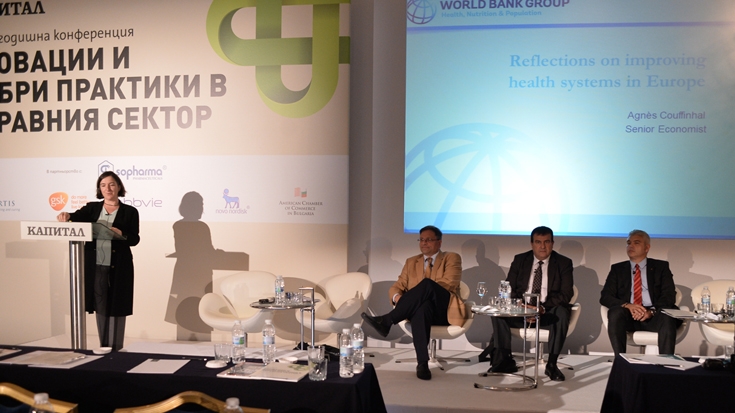There is no recipe, but ingredients matter - according to the World Bank, at the First Annual Conference on “Innovations and Good Practices in the Health Sector”
Nearly everyone who interacts with the health care system in Bulgaria ends up wondering: is the system underfunded? Is it organized in a way which provides the best possible quality given the resources available? Am I paying a fair price for the health services and drugs I receive?
On September 24th, 2014 the Capital Weekly newspaper organized a conference to debate these exact questions. The one-day event titled First Annual Innovations and Good Practices in the Health Sector Conference brought together more than 100 policymakers, representatives of different health organizations, medical professionals, representatives from the pharmaceutical sector, and different patient organizations. The conference looked to highlight good practices in the health sector and suggest solutions for improving the effectiveness, accessibility, and resilience of Bulgaria’s healthcare system in the context of the National Health Strategy 2014 - 2020 and the European Commission Communication on health systems organization.
A World Bank team of experts, led by Tony Thompson, Country Manager for Bulgaria, Czech Republic, and Slovakia, also contributed to these discussions - adding one important aspect to all the questions raised by the participants, namely: how to ensure that people vulnerable to poverty do not bear an unreasonable financial burden when they access necessary health services in the country.


